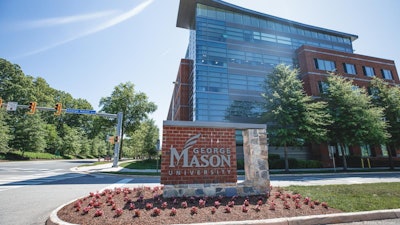
The July 25 letter from Assistant Attorney General Harmeet K. Dhillon to GMU's Board of Visitors represents the fifth federal inquiry into Virginia's largest public university in as many weeks, targeting what critics describe as routine faculty business: expressing confidence in university leadership.
"This is not enforcement—it is intimidation," said Dr. Todd Wolfson, president of the American Association of University Professors (AAUP), in a strongly worded statement condemning the federal probe. "If the Department of Justice can investigate faculty governance bodies for citing a university's own strategic plan, then no campus in America is safe."
The DOJ letter singles out a phrase from the Faculty Senate resolution that referenced a 2022 university goal to achieve "faculty and staff demographics that mirror student demographics." According to the Justice Department, this statement suggests the faculty is "praising President Washington for engaging in race- or sex-motivated hiring decisions."
However, faculty leaders and the AAUP argue the department has mischaracterized the resolution. The phrase appears in a "whereas" clause—a contextual preamble that cites existing university policy rather than advocating for new practices. The language comes directly from GMU's strategic plan, which was approved unanimously by the Board of Visitors.
The investigation comes amid mounting pressure on Dr. Gregory Washington, GMU's first Black president, who has faced four other federal probes related to the university's diversity, equity and inclusion policies and alleged failures to combat campus antisemitism. The timing has raised concerns among faculty and administrators that the investigations represent a coordinated effort to remove Washington from his position.
"We believe these investigations are nothing more than a thin pretext to attack and remove current GMU President Gregory Washington," the George Mason chapter of the AAUP stated, calling on supporters to attend Friday's Board of Visitors meeting where Washington's annual review is scheduled.
The pattern mirrors recent developments at the University of Virginia, where President James E. Ryan resigned last month amid similar federal pressure, leading some to speculate about a broader campaign targeting university leadership.
Education policy experts describe the DOJ's intervention in faculty senate operations as highly unusual. Faculty senates routinely pass resolutions supporting or criticizing university policies and leadership—a function considered fundamental to shared governance in higher education.
The Justice Department has demanded that GMU preserve "all written communications" between Faculty Senate members and between faculty and Washington's office, a request that Wolfson characterized as designed to chill academic discourse.
Faculty Senate President Solon Simmons expressed hope the letter resulted from a misunderstanding of faculty governance roles rather than an attempt to silence professors. "We have no institutional force in the university beyond our moral suasion," he told The Washington Post. "I think it's important that faculty maintain their voice and don't feel intimidated by this process."
The AAUP's response reflects broader concerns about academic freedom under federal scrutiny. Wolfson's statement calls the investigation "an attack on academic freedom, plain and simple," warning that the precedent could affect campuses nationwide.
"Let's call this what it is: a gross misuse of federal power to chill speech, silence faculty, and undermine shared governance," Wolfson said, noting the AAUP's century-long commitment to defending academic freedom.
The controversy unfolds against GMU's unique institutional backdrop. The Northern Virginia university, which evolved from a commuter school to serve 40,000 students, maintains conservative academic programs including the Antonin Scalia Law School. Several current and former board members have connections to the Heritage Foundation, the organization behind Project 2025.
Washington, who created an anti-racism task force in 2020 and has defended the university's diversity programs as meeting federal mandates, faces his annual performance review Friday amid the ongoing federal investigations.
The AAUP is demanding that GMU's Board of Visitors, composed entirely of appointees by Republican Governor Glenn Youngkin, reject the DOJ's requests and affirm protection for faculty speech. The organization warns that university leaders must demonstrate courage in defending shared governance principles.
"We call on the George Mason Board of Visitors to stand with their faculty and president by rejecting this attempt to weaponize federal authority against shared governance," Wolfson said. "They must not only refuse the DOJ's request but also affirm that faculty speech will be protected, not punished."
The Faculty Senate's original resolution, passed just one day before the DOJ letter arrived, affirmed the university's 2013 diversity plan, expressed confidence in Washington's leadership, and called for the "strongest defense possible" of the president during his review process.















